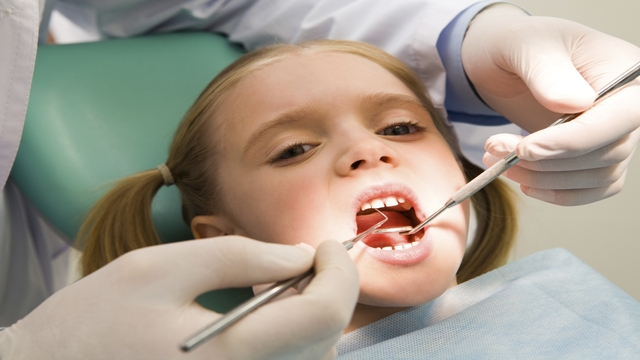Do you clench your teeth during the day or grind your teeth at night? If so, you may have bruxism. The clenching and grinding of your teeth may produce symptoms that include a sore jaw or headache. The cause of bruxism is not completely agreed upon but daily stress may be the trigger in many people.
Bruxism is not a dangerous disorder. However, bruxism can cause permanent damage to your teeth. Grinding can wear down the surfaces of your teeth and could cause cracks or fractures that can become quite serious.
Grinding and clenching does not fall into one medical discipline and costs to treat bruxism can range from $25-$400. The goals of treatment are to reduce pain, prevent permanent damage to the teeth and reduce clenching as much as possible.
There are many approaches to help people unlearn their clenching behaviors. These approaches are more successful for daytime clenching vs. nighttime clenching. In many, just relaxing and modifying daytime behavior is enough to reduce nighttime bruxism. Here are some common treatments for bruxism:
For example, to relieve pain you can apply ice or wet heat to sore jaw muscles. Drink plenty of fluids and get plenty of rest. Also, learn relaxation and stretching techniques for the neck, shoulders and face. Relax your face and jaw several times throughout the day. Self-massage the muscles of the neck, shoulders and face. Carefully feel for small painful nodules (ie: trigger points) that cause pain throughout the face and head.
Also, consider a medical massage or acupuncture. For a massage-based approach, look for a massage therapist who is trained in trigger-point therapy or clinical massage particularly for temporomandibular joint (TMJ) issues.
Night guards/mouth guards and splints are used to prevent damage to teeth. For mild to moderate grinding, consider an over-the-counter guard, which costs between $25-$40. A dental custom fit guard costs around $400. There are different types of splints. Splints are designed to keep all of your back molars separated and the jaw in a more relaxed position. Splints may fit over either the top or the bottom teeth.
Botox has also been used to curb bruxism. The injection into the jaw muscle can relax it and reduce spasms.
Contact a TMJ specialist if you are having trouble eating or opening your jaw. Some dentists specialize in evaluating and treating TMJ and will typically order x-rays and prescribe a night guard. Most TMJ experts consider surgery as a last resort.
Sources:
Anastasia L. Turchetta, RDH, www.AnastasiaRDH.com
DenTek, nightguards
# # #
MC Ortega is a senior communications and messaging executive specializing in media relations, social media, program development and crisis communications. Ortega conducts media relations seminars across the country and has written a media relations handbook. Also, Ortega is an avid traveler and international shopper. Ortega resides with her partner, Craig, dog, Fionne and extensive shoe collection. Ortega also enjoys jewelry design/production and flamenco dancing.



Add a CommentComments
There are no comments yet. Be the first one and get the conversation started!